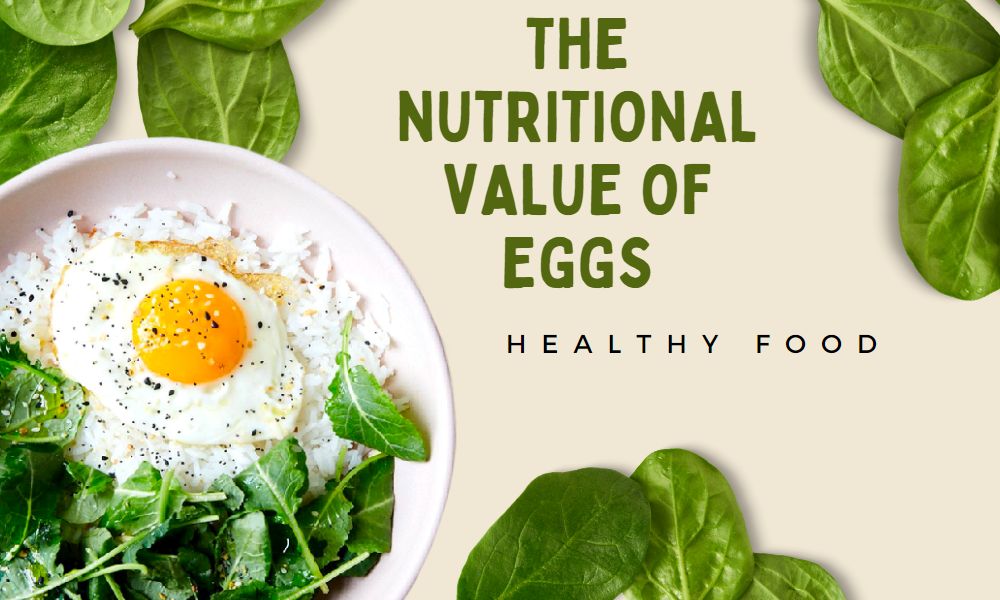Table of Contents
The nutritional value of eggs
Eggs are a staple food in many parts of the world. They are consumed in various ways and are often used as a primary ingredient in many dishes. Eggs are known for their rich nutritional content, which makes them an excellent source of essential vitamins and minerals.
In this blog post, we will discuss the nutritional value of eggs, including their calorie content, protein content, and vitamin and mineral content.
Calorie Content
Eggs are a low-calorie food that is also filling. A large egg contains only 70-80 calories, making it an excellent food to eat when you are trying to lose weight or maintain a healthy weight. Eggs are also a good source of protein, which can help you feel full for longer.
Protein Content
One large egg contains approximately 6 grams of protein, which is roughly 12% of the daily recommended value. Protein is an essential macronutrient that is important for building and repairing tissues in the body. It is also important for maintaining a healthy immune system and for the production of enzymes and hormones.

The nutritional value of eggs
Vitamin and Mineral Content
Eggs are an excellent source of vitamins and minerals. One large egg contains:
• Vitamin B2 (riboflavin) – 15% of the daily recommended value
• Vitamin B12 – 9% of the daily recommended value
• Vitamin A – 6% of the daily recommended value
• Vitamin D – 10% of the daily recommended value
• Vitamin E – 5% of the daily recommended value
• Folate – 5% of the daily recommended value
• Iron – 3% of the daily recommended value
• Selenium – 22% of the daily recommended value
• Phosphorus – 9% of the daily recommended value
• Zinc – 5% of the daily recommended value
Eggs are particularly high in choline, a nutrient that is important for brain health. Choline is important for the development and maintenance of healthy brain cells and has been shown to improve memory and cognitive function.
Cholesterol Content
Eggs are often criticized for their high cholesterol content. One large egg contains approximately 186 milligrams of cholesterol, which is about 62% of the daily recommended value. However, recent research has shown that dietary cholesterol does not have a significant impact on blood cholesterol levels in most people.
In fact, the American Heart Association recently removed their recommendation to limit egg consumption for people with high cholesterol. However, if you have high cholesterol or are at risk for heart disease, it is still a good idea to limit your intake of high-cholesterol foods, including eggs.
How to Eat Eggs
There are many ways to eat eggs, which makes them a versatile food that can be included in many different types of dishes. Some of the most popular ways to eat eggs include:
• Boiled – boiled eggs are an excellent snack or can be added to salads or sandwiches.
• Fried – fried eggs can be served on toast or used as a base for egg-based dishes like omelets and frittatas.
• Scrambled – scrambled eggs are a classic breakfast dish and can be served on their own or with other breakfast foods like bacon and toast.
• Baked – eggs can be baked in various dishes like quiches and egg casseroles.
Conclusion
Eggs are a nutritious and filling food that can be included in many different types of dishes. They are a low-calorie food that is rich in protein, vitamins, and minerals. While they are high in cholesterol, recent research has shown that dietary cholesterol does not have a significant impact on blood cholesterol levels in most people. Overall, eggs are an excellent food to include in a healthy, balanced diet.